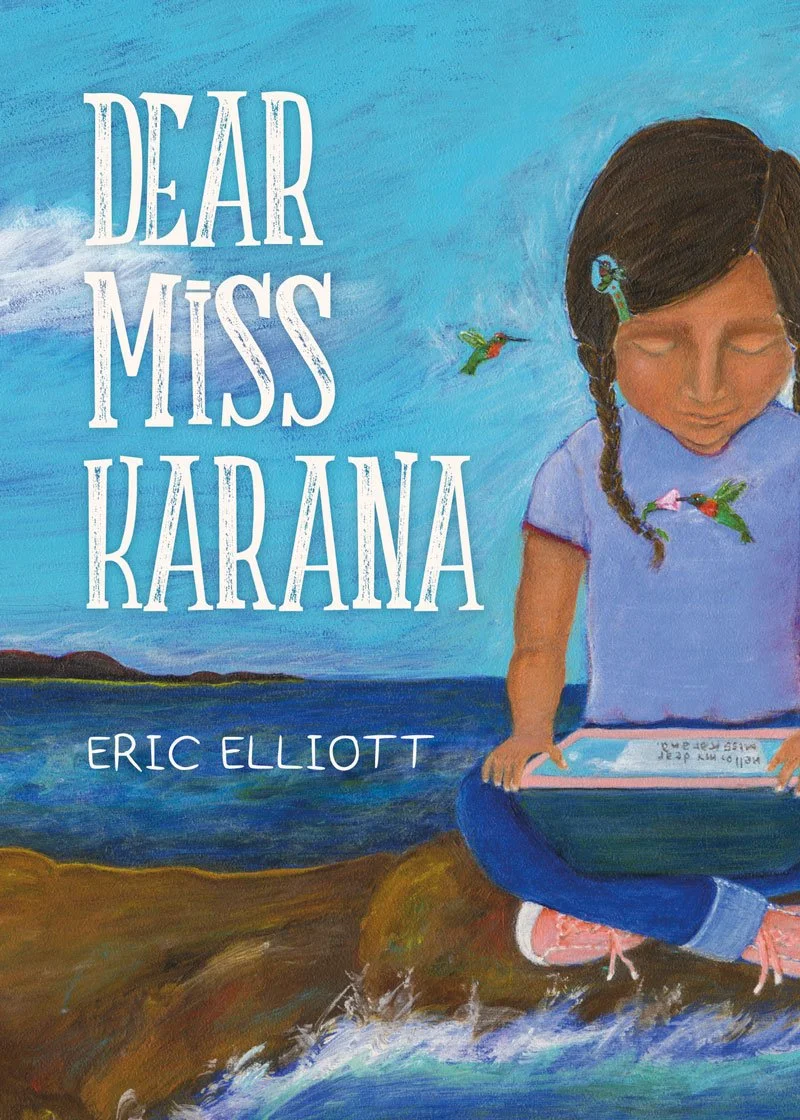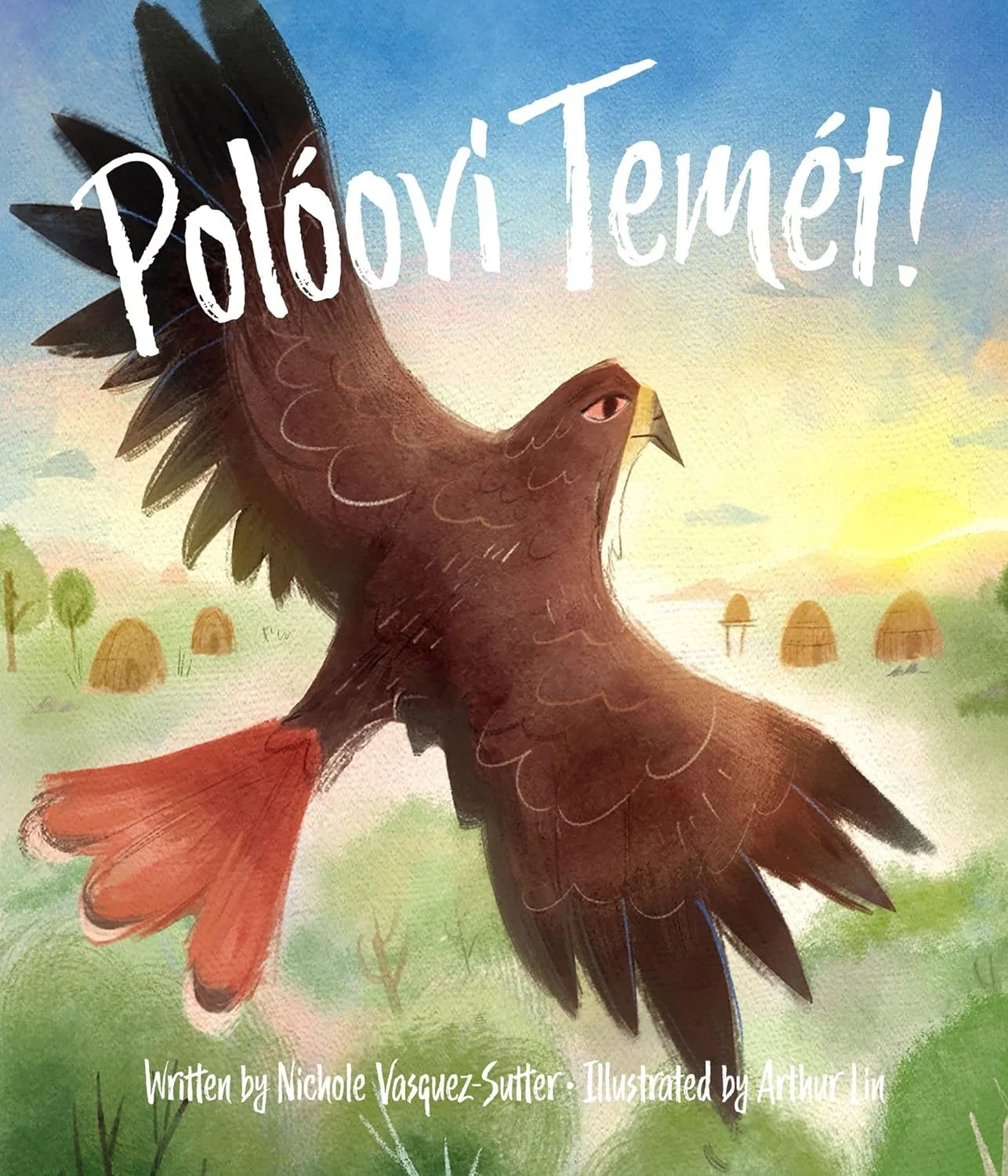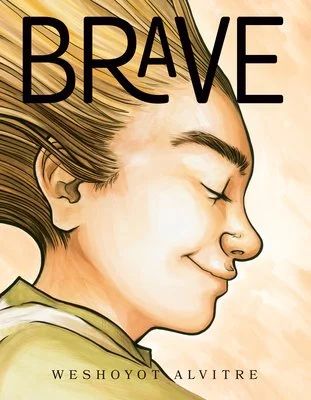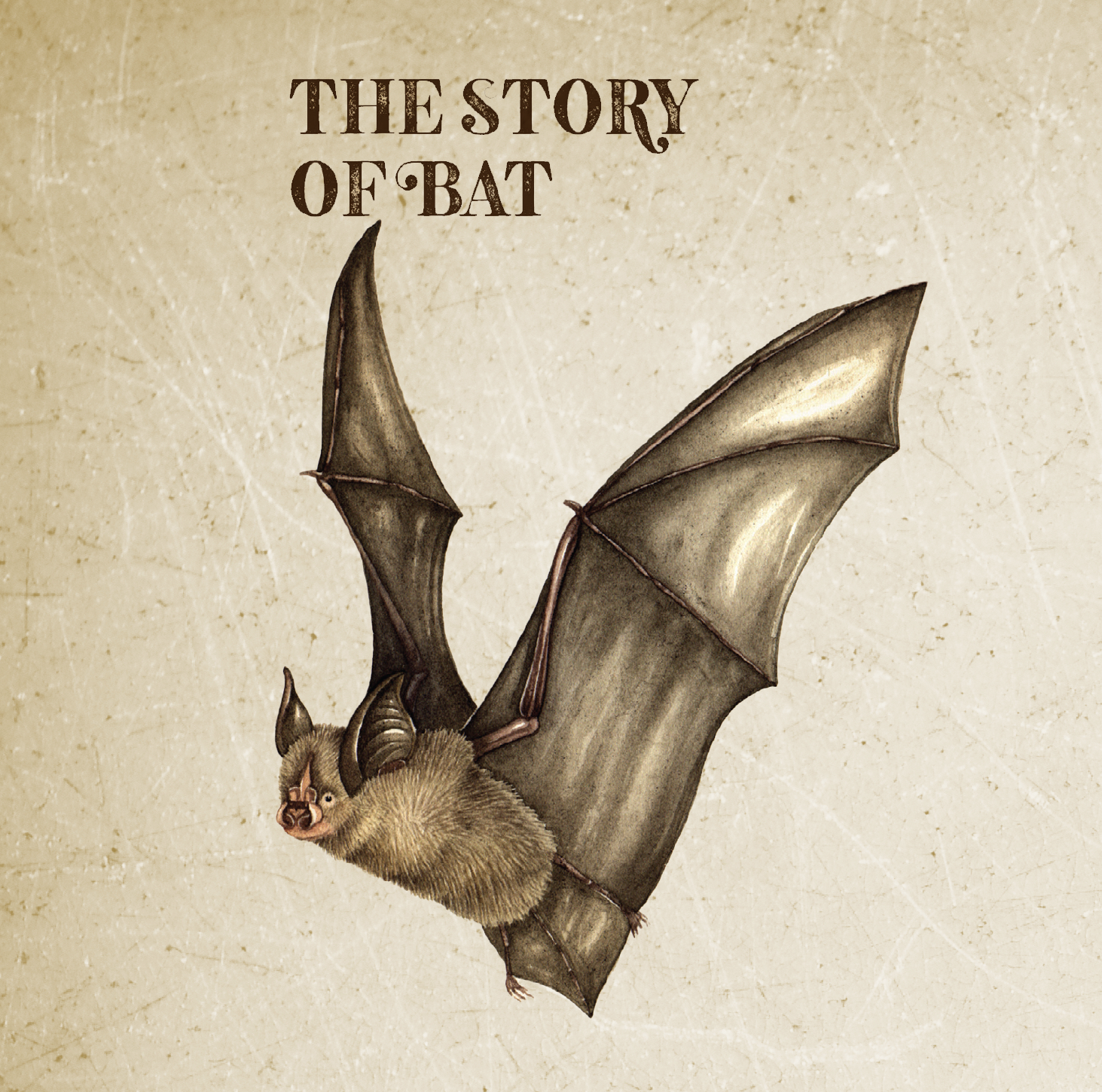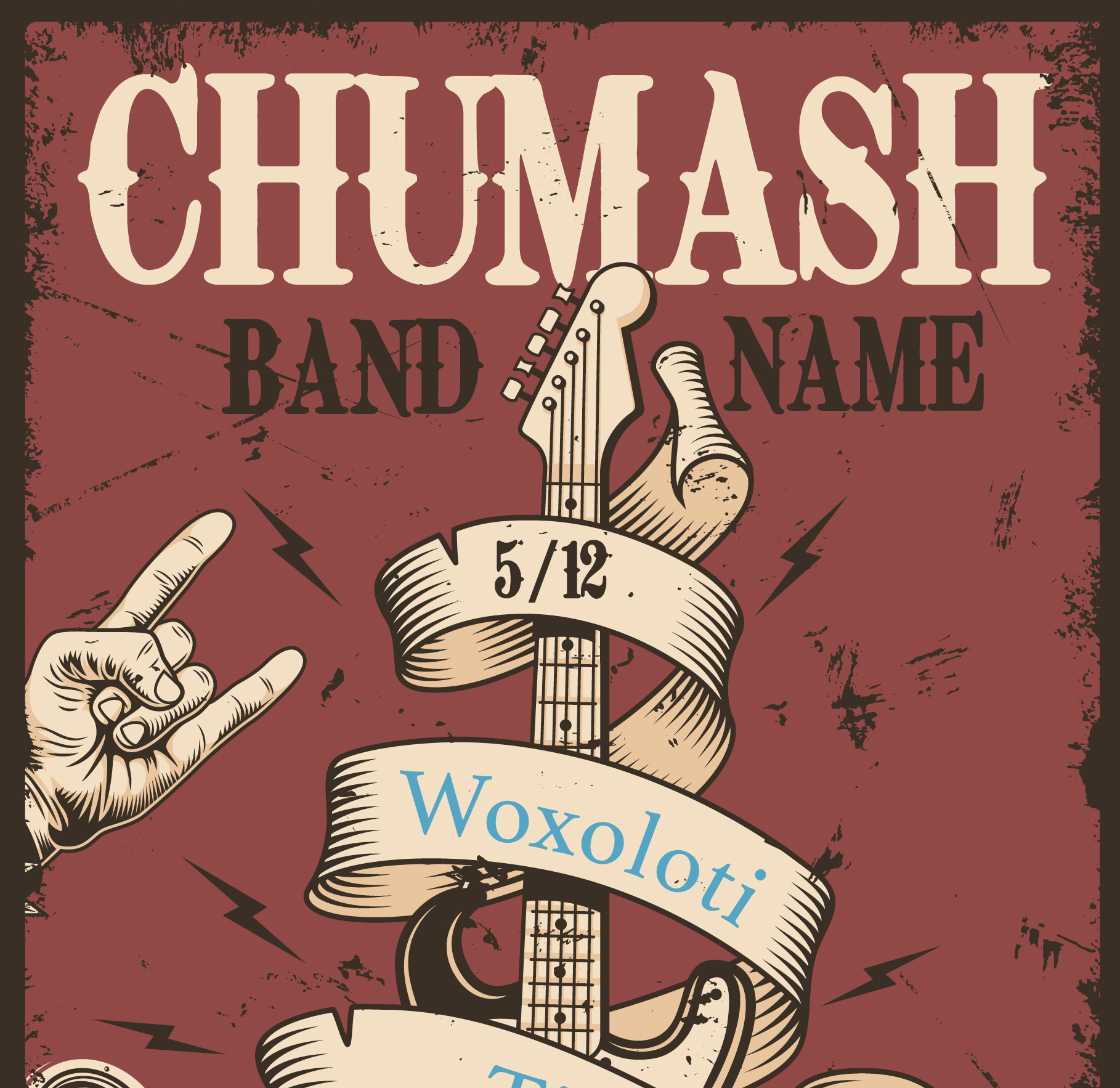
These books help children understand how our California Native people see the world. They’re also a great resource to give your child’s schoolteacher (whose Native book list is often limited to themes of teepees and buffalo). Here's a growing list of books by or about California Native people:
Qéengish No’ó’nan by Nichole Vasquez-Sutter
Spend the day with Qéengish, the squirrel, as you learn about the Luiseño language and culture by enjoying traditional activities from making Wíiwish to playing games with friends.
Coyote at the Big Time by Lyn Risling
Counting from one clapperstick up to ten stars twinkling above the gathering, Coyote explores indigenous cultural traditions, including songs, dances, hand games, art–and, of course, delicious food. Lyn Risling’s beautiful illustrations depict the diversity of traditions that continue to thrive throughout the state. At once a fun introduction to numbers and a celebration of community, this lively counting book shows babies and toddlers how to take in the beautiful world around them.
A Is For Acorn by Lyn Risling
This alphabet board book welcomes youngsters of all cultures into the abundant world of Native California. Beautiful illustrations of animals, plants, and cultural objects show off the spectacular diversity of California’s indigenous cultures and environments. Sturdy enough to withstand any toddler’s grasp, this book is a playful, loving introduction to California’s oldest and most abiding sense of itself.
I Love Salmon and Lampreys: A Native Story of Resilience by Brook M. Thompson
For young readers, an inspiring story about a river, a successful Native-led movement for environmental justice, and the making of a scientist. Yurok/Karuk author Brook Thompson shares how growing up along Northern California’s Klamath River inspired her to protect the fish her family depends on. When dams threatened salmon and lampreys, Tribal communities united—and won. With charming illustrations and fun facts, this powerful story shows how one girl’s love for nature sparked a journey into science and environmental justice.
Dear Miss Karana by Eric Elliott
Ten-year-old Tíshmal begins writing emails to the spirit of the “lone woman” of San Nicolás Island after reading Island of the Blue Dolphins at school. When she hears a recording of the woman’s song, Tíshmal recognizes words from her own Luiseño language, Chamtéela. With help from her grouchy great uncle—the last fluent speaker—they work to uncover the song’s meaning and help Miss Karana’s spirit find peace. Written in Chamtéela and aligned with fourth grade standards, this heartfelt story celebrates family, language, and cultural resilience.
Polóovi Temét! by Nichole Vasquez-Sutter and Arthur Lin
A beautifully illustrated book written in haiku feaaturing animals of all shapes and sizes. Haiku poems consist of 3 lines. The first and last lines of a haiku have 5 syllables, the second line has 7 syllables..
Coyote Rescues Hawk: A Chumash Story & History of the Tomol an Ocean Plank Canoe by Alan Salazar
Chumash storyteller Alan Salazar blends a traditional Chumash tale with the history of the tomol, a Chumash ocean plank canoe. The story follows Coyote as he rescues Hawk, while the nonfiction section teaches about Chumash maritime culture and resilience.
More:
A Tataviam Creation Story
Tata the Tataviam Towhee: A Tribal Story
Chumash Stories: A collection of Traditional Chumash Legends & History
Can You Hear the Plants Speak? by Nicholas Hummingbird
What do we learn from plants when we listen to them speaking? One drop of rain, one seed, one plant can renew a cycle of hope and connection for each of us. Perfect for readers of Sy Montgomery, this book joyfully proclaim even the youngest person can be an earth protector. With gorgeous illustrations from Rock Your Mocs artist Madelyn Goodnight, this book encourages us to engage with the natural world.
We Are Water Protectors by Carole Lindstrom
This award-winning picture book that honors Indigenous-led movements across the world is powerfully written and gorgeously illustrated. This book issues an urgent rallying cry to safeguard the Earth’s water from harm and corruption―inviting young readers everywhere to join the fight.
Soldiers Unknown by Chag Lowry
For 9th grade readers: The Klamath River, 1918. The native Yurok people of Northern California have been untouched by the savage world war raging in Europe—until now. Three cousins are called to serve a nation that has given little but cruelty to their people. Thrust into battle on the Western Front, these young men struggle to preserve their humanity while facing the unspeakable horrors of the greatest military conflict ever known.
Waa’aka’: The Bird Who Fell in Love with the Sun by Cindi M. Alvitre
“Waa’aka’ was born when the earth was soft and the waters were new. It was the beginning of time.” So begins Cindi Alvitre’s vivid and multifaceted telling of a traditional Tongva creation story from Southern California. Waa’aka’ follows the title character, a beautiful bird who falls in love with Tamet, the sun, and tries to follow him up to the sky. Accompanied by richly colorful illustrations from Carly Lake, the book touches deftly on themes like the unintended consequences of greed and the importance of working together. A rendition of one of California’s oldest tales, Waa’aka’ is a beautiful children’s book in the classic style.
Brave by Weshoyot Alvitre
An affirming, heartfelt picture book about a Native American boy proudly growing out his hair and basking in the knowledge that braids are beautiful. This powerful picture book by examines the traumatic history of colonization and reclaims Native pride in long hair, delivering a tender father-son story.
Toypurina by Citlali Arvizu
Tired of being subjected to Spanish colonization, medicine woman Toypurina led a revolt against the San Gabriel mission in California on October 25, 1785. This bold picture book highlights an important, lesser-known leader in Indigenous history. Lushly illustrated by Tongva artist Katie Dorame, this book marks an important event in Indigenous people's resistance to European colonization and is a testament to Toypurina's bravery.

Stories & Songs
Chumash culture is passed down orally through stories and songs, and even in today’s age, when everything is digital, we still tell our children stories around the fire. Enjoy!
Woodpecker and the Flood told by Nana Grace Romero
Coyote Rescues Xelex told by Jimmy Joe Navarro
Sky Coyote & the Sun told by Stephen Franco
The Three Worlds told by Johnnie Moreno
Palatino & the Tomol told by Bubba Jaimes
Four Chumash Islands told by Johnnie Moreno and Georgiana Sanchez
A History of Abundance told by Martha Jaimes
Audio permission provided by the Chumash Maritime Association as part of the Syuxtun Story Circle project—in partnership with the City of Santa Barbara and the Santa Barbara Arts Commission.

Check out these fun ways to learn about our Šmiwič Chumash language, stories, culture, and connection to the land!
Chumash Word Wizard by Tima Lotah Link
Read three Chumash tales and hunt for the Šmuwič word clues like a storytime sleuth!
Chumash Band Name by Tima Lotah Link
Making your Chumash band name is easy: just combine an insect, your weirdest cousin’s name, and something mildly threatening. Boom: “Caterpillar Mia & the Foggy Twilights are headlining the tule house tonight!”
Chumash Coloring Fun by Tima Lotah Link
Four pages of culture, language, and local wildlife for your little one to color!
Ancestral Waters by MPA Collaborative Network
Enjoy this mix of coloring book, games, and fun cultural stories—featuring Chumash and other tribal artists from across California Native cultures.
Why Eat Native Foods? by Tima Lotah Link
Learn about three foods California Native people eat while coloring and practicing your letters. Aimed at 5-7 year olds.

Spirit Rangers | Netflix (streaming)
Created by Karissa Valencia, a member of the Santa Ynez Band of Chumash Indians. The show premiered on Netflix on Indigenous Peoples' Day, October 10, 2022.
The show follows three siblings, Kodi, Summer, and Eddy Skycedar, who are "Spirit Rangers" and can transform into animal spirits to protect their home, a national park in California. The series is inspired by stories from various Native American tribes, including the Chumash, and incorporates elements of Chumash culture.
Molly of Denali | PBS Kids (free)
This Peabody Award-winning series follows Molly Shahnyaa Mabray, an Alaska Native girl from the fictional village of Qyah, and her family, friends Tooey Ookami and Trini Mumford, her Malamute Suki, and other residents. Her family runs the Denali Trading Post. The series also teaches children literacy skills through informational text and communication.
Wapos Bay | Amazon Prime (streaming)
This Golden Sheaf Award-winning stop-motion series follows the adventures of Raven, her brother Talon, their cousin T-Bear, and friend Devon as they explore their remote Cree community in northern Saskatchewan. Aired in the languages of Cree, English, French, and Inuktitut, this show is a humorous look at Indigenous life featuring positive role models for children.
Chumash Science Through Time: The Arborglyph | Youtube (free)
This visually stunning educational video was created by the Guadalupe Cultural Arts and Education Center. It features a Chumash tree carving that helps track important times of the year: when summer is hottest, when fall begins, when winter is coldest, and when spring flowers start to bloom. You'll learn how Chumash ancestors could tell time by looking at shadows and stars!
City of Ghosts | Netflix (streaming)
Meet the Ghost Club! Their adventures take them all around Los Angeles as they interview ghosts, solve problems and learn about their city's history. Featuring a cast of voices from local Tongva people (our neighbors to the south).






